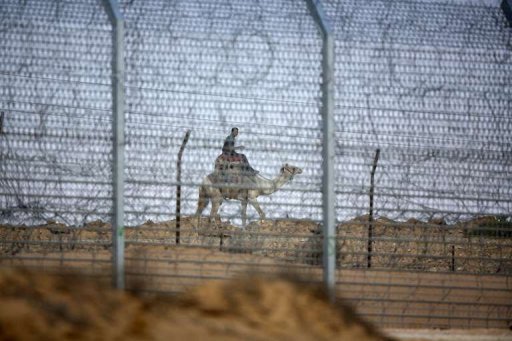CAIRO: The exchange of experience and coordination between international organizations actively involved in electoral assistance as well as understanding mechanisms employed in other countries are central to guaranteeing electoral credibility, a United Nations Development Program (UNDP) two-day meeting concluded.
The UNDP’s Community of Practice on Electoral Assistance for the Arab Region was held Monday in Cairo bringing together elections practitioners, which include representatives of national electoral management bodies and civil society organizations from Egypt, Tunisia, Bahrain, Lebanon, Jordan and the occupied Palestinian territories, as well as experts from all over the world.
“The recent political developments in the region and Egypt in particular, have attracted the world’s attention […] in the transition process, the future electoral processes have attracted keen interest and a certain degree of controversy in the Egyptian political arena. It is an understatement to say that elections will play a key role in political developments here in Egypt, and all their example will resonate throughout the region, over the coming months,” said UN Resident Coordinator and UNDP Resident Representative, James Rawley in his opening remarks.
“The provision of electoral assistance is one of the critical roles the UN plays in promoting democratic governance. UNDP has strong experience and expertise in supporting and consolidating capacity in electoral institutions and practice.
The UN has a wide range of electoral assistance modalities – and while there are no ‘recipes’ in this area, UNDP has the luxury of benefiting from extensive experience and lessons learned,” he explained.
“The transformational change brought about by the people of the region has emphasized the fundamental importance of free and credible elections and the pivotal role civil society and youth groups will play in forthcoming elections,” said Gerladine Fraser Moleketi, director of the Democratic Governance Group in UNDP’s Bureau of Development Policy.
“With the Electoral Cycle Approach, this underlines the need for effective voter and civic education, especially for those who will be participating in elections for the first time in their lives,” she added.
The UNDP provides assistance through the Electoral Cycle Approach which goes beyond voting to include other key areas of the electoral process including: legislative reform, fostering independence and professionalism of electoral management bodies, systems to ensure credibility of elections, women’s active participations and voter and civic engagement.
She explained that people everywhere must have political power, and the best way to achieve this is with a human development objective. Furthermore, the larger political climate has to be democratic. For example the media has to be free to report on politics and there must be an opportunity for civic engagement.
The meeting included several sessions over the two days which focused on examining effective modalities of electoral programming in the region within the framework of the UNDP’s Electoral Cycle Approach.
UNDP Electoral Advisor, Linda Maguire, explained the Electoral Cycle Approach saying it is about “timing and stakeholders.”
These stakeholders include voters, elections management bodies, executives, legislatives, judiciaries, parties and candidates, civil society, media, international donors, regional organizations, security forces and vendors.
Maguire explained that it’s focused on the long-term as it’s about developing capacities; it’s a way to engage with a wide variety of stakeholders and to promote more exchange, networking and south-south cooperation.
UNDP offers strategic assistance throughout the electoral cycle, from support to designing more effective systems to help in resolving disputes after the votes are counted. Their strategy is about an integrated, long-term electoral cycle approach in electoral assistance by supporting national efforts.
On average UNDP is engaged in supporting an election somewhere in the world every two weeks. Between 2005 and 2008, electoral assistance accounted for nearly 20 percent of all UNDP expenditure in Democratic Governance, about half of which has went to Africa. It has provided electoral assistance to 35 countries in 2010.
UNDP has launched the Global Program for Electoral Cycle Support in 2009; a three-year $50 million program which aims for policy and programming coherence and impact as it helps countries to improve their electoral laws, processes and institutions and to enhance women’s participation in the electoral process.
“Through this community of practice, we have tried to offer our national partners from electoral management bodies and civil society the space to learn about best practices and from intra-Arab region exchange of experience, as well as from other relevant South-South experiences and to promote future peer support and technical cooperation,” said Mona Hammam, director of UNDP’s Regional Center in Cairo.
“We will incorporate the rich discussions of this meeting in articulating the types of electoral assistance that UNDP can offer expediently to national efforts aimed at conducting efficient, fair and transparent election that honors the sacrifices of the people who so valiantly stood their ground to achieve voice, accountability, inclusiveness and human dignity, of which elections are but one part,” she noted.

